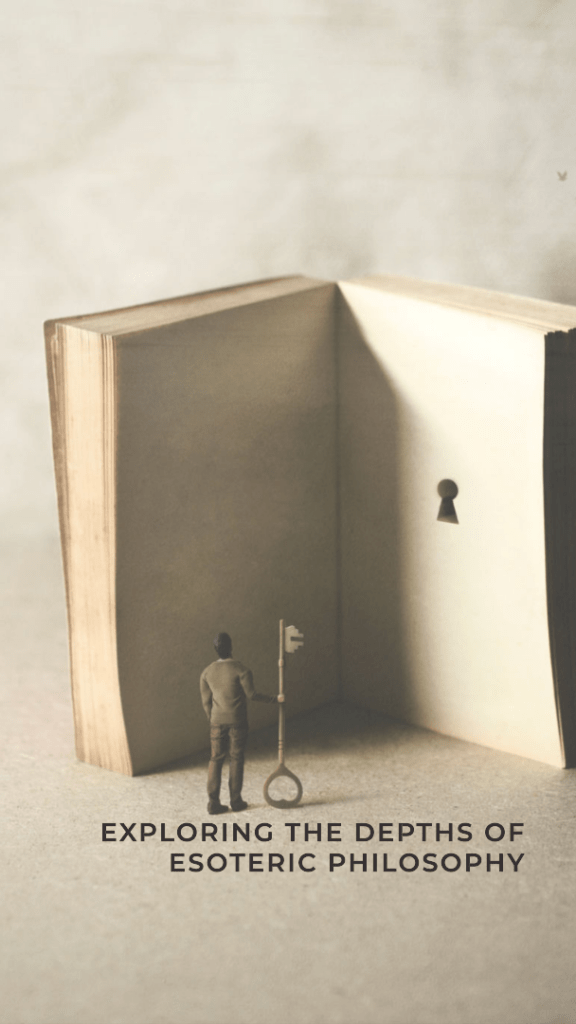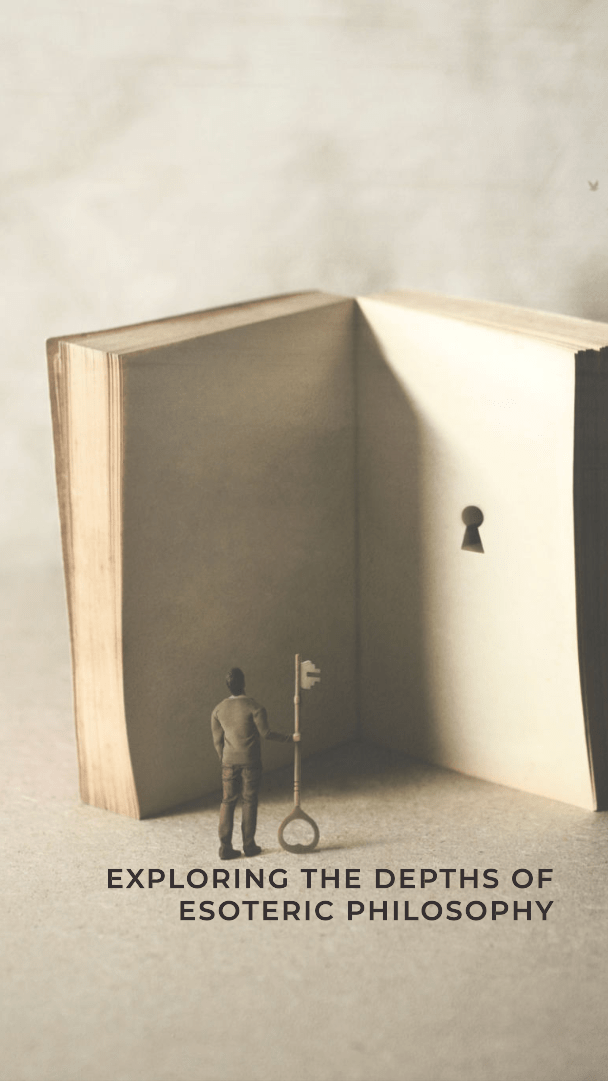
Manly Palmer Hall (1901–1990) was a Canadian-born author, mystic, and lecturer, widely recognized for his extensive contributions to the fields of mysticism, esoteric philosophy, and the study of ancient religions and symbolism. Hall’s prolific writings and speeches have made him one of the most esteemed figures in the study of the arcane and spiritual sciences in the 20th century.
Early Life and Education
Manly P. Hall was born on March 18, 1901, in Peterborough, Ontario, Canada, to parents William S. Hall and Louise Palmer Hall. After his mother’s departure and his father’s inability to care for him, Hall moved to the United States, where he was raised by his grandmother in South Dakota. Hall’s early years were marked by a profound sense of solitude and an insatiable hunger for knowledge, which led him to embark on a lifelong quest for wisdom across various spiritual traditions and philosophical schools of thought.
Despite having limited formal education, Hall’s autodidactic pursuits quickly propelled him into the world of esoteric and philosophical studies. His early adulthood was spent traveling to various parts of the world, including Europe and Asia, where he sought to study with spiritual teachers and to gain firsthand knowledge of ancient traditions.
Career and Major Works
In his twenties, Hall moved to Los Angeles, California, a burgeoning hub for spiritual and philosophical movements in the early 20th century. There, he became a prolific writer and speaker, quickly gaining recognition for his eloquence and depth of knowledge.
Hall’s most renowned work, “The Secret Teachings of All Ages” (1928), is a comprehensive encyclopedia of the world’s mystical and philosophical traditions. This magnum opus, published when he was only 27 years old, covers a vast array of subjects from ancient religions, Freemasonry, and Rosicrucianism to medieval magic, alchemy, and the mysteries of the symbols. The book remains a seminal reference work for students of the esoteric to this day.
In 1934, Hall founded the Philosophical Research Society (PRS) in Los Angeles, an institution dedicated to the study and dissemination of the world’s wisdom traditions. Through PRS, Hall established a library, lecture hall, and publishing house, creating a center for scholarly research and public education on philosophy, religion, and science.
Throughout his life, Hall delivered thousands of lectures, published over 150 books and essays, and amassed one of the most significant collections of rare texts on alchemy, religion, and metaphysics. His other notable works include “The Masonic Orders of Fraternity” (1950), “Lectures on Ancient Philosophy” (1929), and “The Lost Keys of Freemasonry” (1923), among others.
Legacy and Death
Manly P. Hall’s impact on the study of esoteric philosophy and the spiritual sciences is immeasurable. His work has inspired generations of seekers, scholars, and mystics to explore the depths of human consciousness and the mysteries of the universe.
Hall passed away on August 29, 1990, in Los Angeles, leaving behind a legacy as one of the most influential interpreters of the secret doctrines and mystical traditions of the world. His teachings continue to resonate with those on the spiritual path, affirming his place as a guiding light in the exploration of the ancient wisdom that underpins all great teachings.
Quotes
Here are ten quotes that capture the essence of his teachings:
- “Words are potent weapons for all causes, good or bad.”
- “Man’s status in the natural world is determined, therefore, by the quality of his thinking.”
- “We are all indebted for a multitude of our smug beliefs to the incomprehensibility of the universe and the consequent narrowness of our own individual perceptions.”
- “The end of science is not to prove a theory, but to improve mankind.”
- “Philosophy is the science of estimating values. The superiority of any state or substance over another is determined by philosophy.”
- “If the infinite had not desired man to be wise, he would not have bestowed upon him the faculty of knowing.”
- “Learning to live in the present moment is part of the path of joy.”
- “Wisdom is not bestowed, it is achieved.”
- “To repress one’s feelings only makes them stronger and more rigid.”
- “The person who is aware of the universality of life looks upon his fellow beings with a heart of compassion and an understanding mind. He realizes that all are part of one stupendous whole, whose body Nature is, and God the soul.”
These quotes encapsulate Hall’s deep understanding of human nature, the importance of wisdom, and the interconnectedness of all life. His work continues to inspire those who seek knowledge beyond the conventional, urging them towards the pursuit of a deeper, more profound understanding of the universe and their place within it.
Below is a selection of some of his most notable and influential works. This list is not exhaustive but highlights key publications that have had a significant impact:
Books and Monographs
- “The Secret Teachings of All Ages” (1928) – Hall’s magnum opus, a comprehensive encyclopedia of ancient mystical, philosophical, and religious traditions.
- “The Lost Keys of Freemasonry” (1923) – A exploration of the symbolic and philosophical underpinnings of Freemasonry.
- “Lectures on Ancient Philosophy” (1929) – An expansion of the philosophical concepts introduced in “The Secret Teachings of All Ages.”
- “The Initiated Interpretation of Ceremonial Magic” (1923) – A study on the role of ceremonial magic in the development of the human soul.
- “An Encyclopedic Outline of Masonic, Hermetic, Qabbalistic and Rosicrucian Symbolical Philosophy” (1928) – Another title for “The Secret Teachings of All Ages,” often used in subsequent editions.
- “The Adepts in the Western Esoteric Tradition” (1938) – A series that profiles significant figures in Western esoteric thought.
- “Masonic Orders of Fraternity” (1950) – An exploration of Masonic history and its various orders.
- “The Phoenix: An Illustrated Review of Occultism and Philosophy” (1931-1932) – A collection of essays on various occult and philosophical subjects.
- “Man: The Grand Symbol of the Mysteries” (1932) – A book discussing the symbolic and esoteric interpretations of the human body.
- “Lectures on Ancient Philosophy: An Introduction to the Study and Application of Rational Procedure” (1929) – Hall delves into the teachings of ancient philosophers and their relevance to modern life.
- “The Wisdom of the Knowing Ones: Gnosticism: The Key to Esoteric Christianity” – A look into Gnostic traditions and their connections to Esoteric Christianity.
- “The Philosophical Research Society: A Retrospective” – Reflecting on the work and impact of the society Hall founded.
- “Reincarnation: The Cycle of Necessity” (1949) – Hall’s examination of the concept of reincarnation across various cultures and philosophies.
- “The Secret Destiny of America” (1944) – Explores the esoteric and mystical foundations of the United States.
Pamphlets and Shorter Works
- “Psychic Self-Destruction” – A pamphlet discussing the dangers of misusing psychic abilities.
- “Meditation Symbols in Eastern & Western Mysticism: Mysteries of the Mandala” – A comparison of meditation symbols across different traditions.
Lectures and Audio Recordings
Hall was also known for his lectures, many of which have been preserved as audio recordings. These cover a vast array of subjects from astrology to Zen Buddhism, deepening the understanding of his written works.
Given the prolific nature of Hall’s career, there are numerous other titles, lecture series, and unpublished works that contribute to his legacy. His works continue to be studied by those interested in the esoteric, philosophical, and spiritual traditions.
Esoteric philosophy – Authors of Note
Esoteric philosophy has been enriched by the contributions of numerous authors across centuries, each bringing unique insights into the mystical, occult, and spiritual dimensions of human experience. Here are several authors, past and present, whose works have been fundamental to the development and dissemination of esoteric thought:
1. Helena Blavatsky (1831–1891)
- A co-founder of the Theosophical Society, Blavatsky’s major works include “The Secret Doctrine” and “Isis Unveiled,” which explore the synthesis of Eastern and Western philosophies and the hidden mysteries of existence.
2. Aleister Crowley (1875–1947)
- An influential figure in modern occultism, Crowley founded the religious philosophy of Thelema. His extensive writings include “The Book of the Law” and “Magick in Theory and Practice.”
3. Dion Fortune (1890–1946)
- A British occultist and author, Fortune wrote several books on the mystical Qabalah, psychic self-defense, and esoteric Christianity, including “The Mystical Qabalah” and “Psychic Self-Defense.”
4. Eliphas Lévi (1810–1875)
- A key figure in the revival of Western esotericism, Lévi’s works, such as “Transcendental Magic, its Doctrine and Ritual,” helped to popularize the study of the occult and ceremonial magic in the 19th century.
5. Israel Regardie (1907–1985)
- Known for his work in making the teachings of the Hermetic Order of the Golden Dawn more accessible, Regardie’s influential books include “The Golden Dawn” and “The Tree of Life: An Illustrated Study in Magic.”
6. G. I. Gurdjieff (1866–1949)
- A mystic and spiritual teacher, Gurdjieff’s teachings focus on awakening higher consciousness through self-observation and inner work. His ideas are presented in works like “Beelzebub’s Tales to His Grandson.”
7. P. D. Ouspensky (1878–1947)
- A student of Gurdjieff, Ouspensky explored the nature of consciousness and the possibility of spiritual evolution in his book “In Search of the Miraculous,” detailing his time with Gurdjieff.
8. Samael Aun Weor (1917–1977)
- A prolific writer, he founded the Gnostic Movement, blending esoteric Christianity, Buddhism, and other teachings. His numerous works aim to elucidate the path to spiritual awakening.
9. Rudolf Steiner (1861–1925)
- The founder of Anthroposophy, Steiner’s extensive body of work covers spiritual science, education (Waldorf schools), biodynamic agriculture, and the arts. His lectures and books span a wide range of topics, from reincarnation and karma to the spiritual realms.
10. Thomas Troward (1847–1916)
- A judge in British India and a writer on metaphysics and the New Thought movement, his works like “The Edinburgh Lectures on Mental Science” have influenced the philosophy of mental and spiritual healing.
These authors, among others, have significantly shaped the landscape of esoteric philosophy, offering pathways to understanding the deeper aspects of life and the cosmos. Their collective works provide a rich tapestry of wisdom, exploring the intersections of science, religion, and mysticism.
